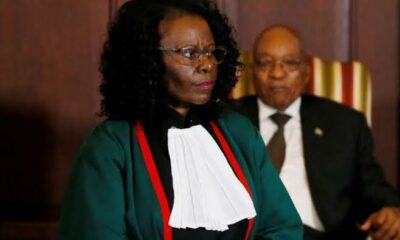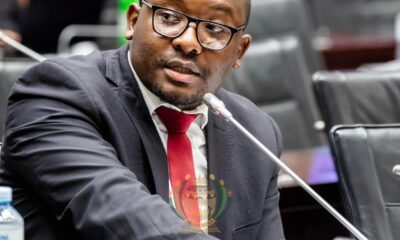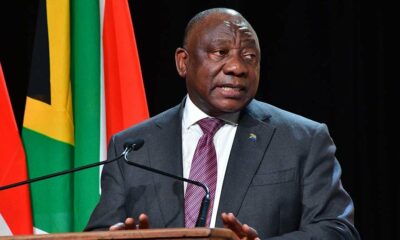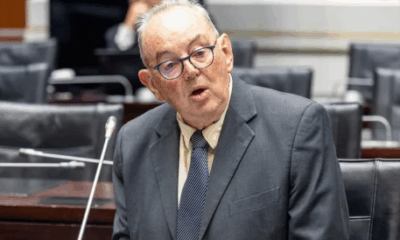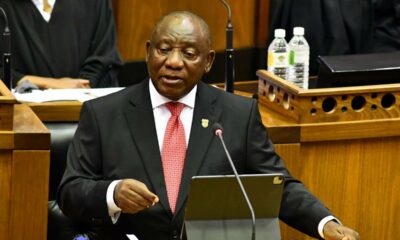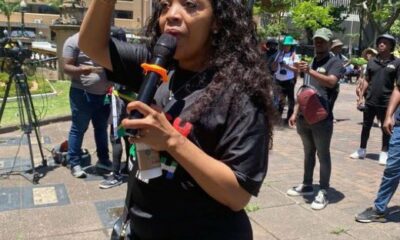News
Incoming Police Minister Firoz Cachalia to Address Explosive Interference Claims With Mkhwanazi
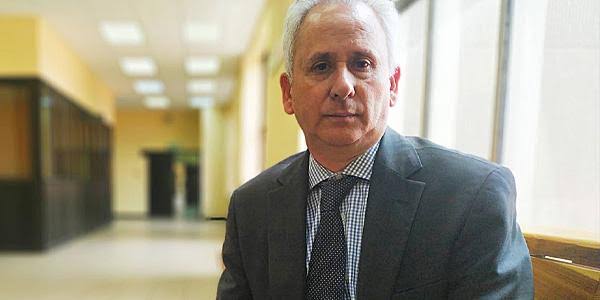
As South Africa reels from mounting political interference allegations within its policing ranks, incoming Police Minister Professor Firoz Cachalia has stepped into the eye of the storm. Set to officially assume the role in August, Cachalia has promised to personally meet KwaZulu-Natal police commissioner Lieutenant General Nhlanhla Mkhwanazi over claims that are shaking the country’s law enforcement to its core.
In an interview with Newzroom Afrika, Cachalia didn’t mince words. He described Mkhwanazi’s recent press conference—where the commissioner publicly accused senior police officials of colluding to dismantle the political killings task team—as “highly unusual,” but acknowledged that the circumstances might have warranted it.
“Certainly, in the ordinary course of his duties… a person in his position should not act in that way,” Cachalia said. “But in the circumstances that he found himself in, he decided that he needed to make these allegations public.”
And what allegations they are.
Mkhwanazi accused Deputy Police Commissioner Lieutenant General Shadrack Sibiya of working alongside information peddler Brown Mogotsi and senior official Mchunu to collapse the unit investigating political killings in the province. The task team, now reportedly disbanded, had 121 active dockets—cases that are now potentially stalled.
He backed his claims with WhatsApp messages, SAPS documents, and cellphone data.
While Mchunu had earlier argued in a December 2024 letter to Police Commissioner General Fannie Masemola that the task team had “outlived its usefulness,” Masemola has since denied ordering the unit’s dissolution.
The fallout was swift.
President Cyril Ramaphosa placed Mchunu on special leave and established a Judicial Commission of Inquiry to investigate. Sibiya was also put on special leave pending an internal SAPS investigation.
Meanwhile, Cachalia, who is wrapping up his tenure as director of the Mandela Institute at the University of the Witwatersrand—has been thrust into a chaotic transition.
The 66-year-old described receiving the appointment call in a surreal moment: relaxing on a Sunday afternoon, watching the Wimbledon final between Jannik Sinner and Carlos Alcaraz. His phone had been ringing off the hook, ignored until the Presidency tracked him down via his brother, Justice Cachalia, and his wife.
“It turns out the Presidency had been trying to get hold of me for much of the day,” he said, laughing. “Eventually, they got hold of my wife, who was sitting next to me watching tennis. From then on, we realised the president was trying to contact me.”
When President Ramaphosa finally reached him around 6:30 PM, Cachalia was told he would be stepping into one of South Africa’s most embattled Cabinet portfolios—effective August, once his university commitments concluded.
“It was a surprise, of course,” Cachalia said. “I’ve been an academic for 15 years after serving in government. But I gave my all from a young age for political change in this country. This is a great honour.”
Cachalia described the appointment as “humbling,” admitting he feels “slightly daunted” but determined to give it everything he’s got.
And he’ll need to.
The SAPS faces not only an internal credibility crisis but growing public concern over unresolved political violence and the protection of criminal elements. As Cachalia prepares to meet Mkhwanazi, the country watches closely, hopeful that this long-simmering scandal will finally receive the clarity and accountability it demands.
{Source: IOL}
Follow Joburg ETC on Facebook, Twitter , TikTok and Instagram
For more News in Johannesburg, visit joburgetc.com

